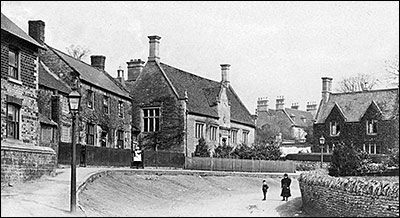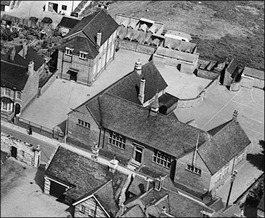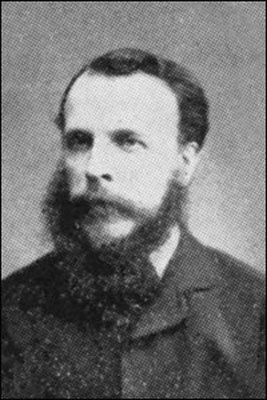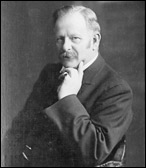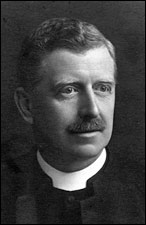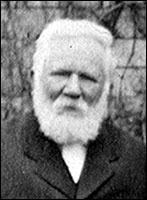|
||||||||||||
|
Article from Northampton Mercury Publication date: Friday 6 January 1899 Education School Board meeting |
||||||||||||
|
||||||||||||
|
EDUCATION AT BURTON LATIMER
VICTORY FOR THE NONCONFORMISTS
Mr T Bird, one of the members of the School Managers' Committee, moved the following resolution: “That this meeting of parochial electors, in view of the fact that voluntary effort has not only supplied school accommodation for the parish of Burton Latimer largely in excess of the present requirements, but equipped such schools and continues to maintain them, without any expense to the parish, in the state of the highest efficiency, strongly urges the Education Department not to grant to the local School Board the power to acquire, lease, or build school premises in Burton Latimer at the present time.” In moving the resolution, Mr Bird asked where was the need for Board Schools in the parish? The Schools provided by voluntary effort in the parish were second to none in the county, for they were in the highest state of efficiency and with the highest possible grant. (A Voice: Who has to pay?) There had been several bogies trotted out during this educational crisis, but so far as the question of the religious education in the Church Schools was concerned, it was a fact that the Nonconformist minister had had an opportunity to visit the school to impart religious instruction to the children of Nonconformist parents. As for religious education, he did not think that what was imparted in the schools would do anyone much harm, neither would it do any good. (Roars of laughter) So long as the voluntary effort could supply the educational needs of the parish, he did not see that the parish should be saddled with any rate. If the Nonconformists could run the new schools and earn the grant, by all means let them do so, for competition was as good in educational matters as is business. One of the chief Nonconformists had frankly admitted that they intended to ultimately make them Board Schools. They now had the schools erected and they found themselves in a hole. (Uproar) He contended that the signatures to the Nonconformist memorial were obtained by fraud. (Great uproar) Mr Bird, in conclusion, reiterated this phrase, in spite of the Chairman's caution. - Mr W Attfield seconded. In reply to questions by Mr J H Ward, the Chairman said the village endowments now used by the Church School managers amounted to about £80 or £90 per annum. The Nonconformist managers asked for £39 out of this, and, providing this was granted, they would be willing to run their own schools. It appeared to him that this was not an unfair proposition. He was pleased to admit that all through the controversy there had been no question raised about the efficiency of the Church Schools, because they were all ready to admit the thorough efficiency of the schools.
Mr C Barlow said the Church party were very keen on not wanting to have the schools placed on the rates, but they forgot what had been drawn from the pockets of Nonconformists for maintenance in bygone years. If the endowments of the villages were left for school purposes, and after the Church party had admitted that the Nonconformists had as much right to the schools as the Church party had, providing that the Nonconformists secured one-half the attendance they were entitled to one-half of the endowments. He moved: “That the meeting is of opinion that the compromise tentatively agreed to by the Rector and Mr Collings, and based upon an equitable division of the village endowments, should be accepted by both sides, so that the schools of the village might be carried on without any addition to the rates.”
The Rev B W Jacques, the rector, said he did not believe that it was the wish of the parochial electors to have a large block of schools upon the rates, and he fully understood that if they were to avoid that step they must meet the Nonconformists with some amicable inducement. It was one thing to establish a School Board, for this could be obtained by a fair majority; but it would require three-fourths of the majority to dissolve the Board. He felt sure that the day would come in Burton when the voluntary effort would no longer be able to cope with the ever-increasing demand for education, and he should favour an agreement being arrived at because the Education Department would give no decision on the educational question in the parish until a parish meeting had decided whether the new schools should be placed upon the rates, or whether they should be worked by voluntary effort.
By request of the Chairman, Mr Attfield and Mr Ward then counted the voting, and after a double count the scrutineers declared the amendment carried by a small majority, a decision which was received with great applause by the Nonconformists. On the amendment being put as a substantive resolution, it was declared carried by 95 votes to 81, giving Mr Barlow's motion a majority of 14 votes. The Rector then asked whether the Chairman intended to communicate with the Education Department as to the result of the meeting. The speaker was proceeding to complain of Mr Barlow springing his amendment upon the meeting late, when Mr Tailby rose to a point of order. The Chairman ruled all further discussion out of order, and as he had received a note from five gentlemen who voted in the minority demanding a poll, the amendment would have to be fought out later on, as soon as a poll could be arranged. The proceedings closed at ten pm with a vote of thanks to the Chairman. See Church & Free Church Tensions - Click here See also History of Education Part V Denominational Tension 1888-1900 - Click here |
||||||||||||
